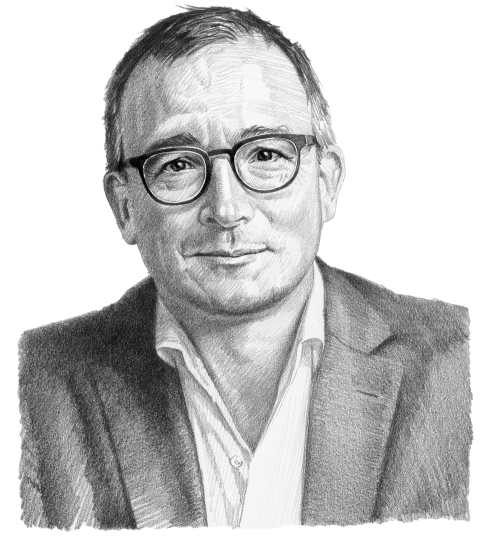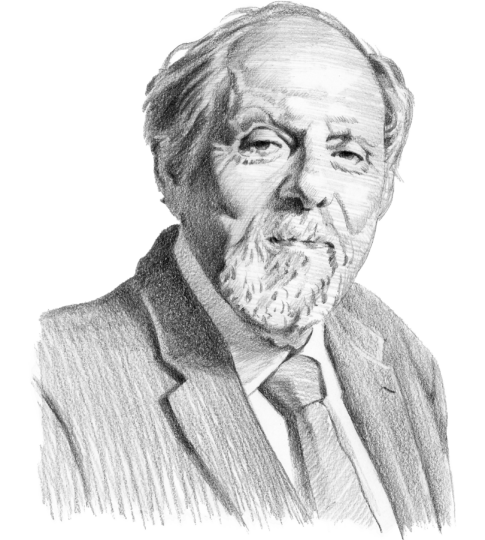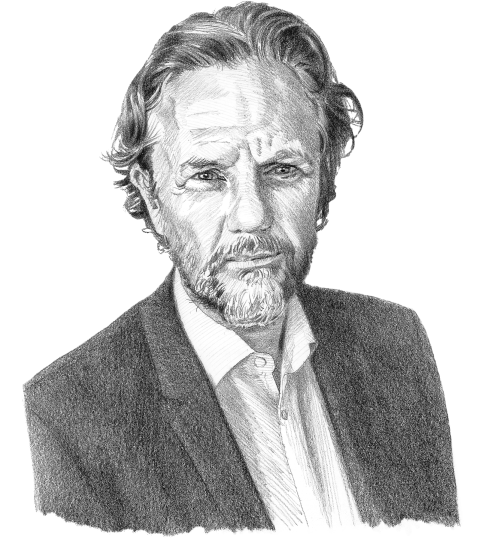Was there really a ‘Zeitenwende’? German foreign policy in the 21st century
Germany has sought to balance the principles of its post-World War II defense ethos, while lacking the strategy and leadership necessary since the end of the Cold War.

In a nutshell
- German foreign policy has been deeply shaped by historical memory
- At the end of the post-Cold War era, Germany was not relevant militarily
- Berlin will likely pursue only a gradual implementation of the ‘Zeitenwende’
In 1989-1990, Germany experienced a peculiar end of history. With East Germany’s peaceful accession to the Federal Republic, Germany finally saw a successful revolution. Following the disastrous failures of the 20th century, the diplomacy of German reunification constituted the first case of successful great power politics in the country since Bismarck. As the historian Fritz Stern observed, this was a rare “second chance” for Germany to play a leading role in Europe after the catastrophe of the Nazi era. All this gave the reunification a dimension of redemption, which expressed itself in two leading principles: “never again war” and “never alone again.”
At the same time, unified Germany was confronted with new expectations. Its international role increasingly outgrew the approach of restraint, defense preparedness and checkbook diplomacy that the Federal Republic had followed during the partition. A landmark ruling by the Constitutional Court in 1994 paved the way for the Federal Republic’s armed forces, the Bundeswehr, to participate in NATO’s Operation Allied Force in Kosovo in 1999.
Yet German participation in out-of-area operations was at odds with another self-image: the concept of civil power (Zivilmacht). It comprised five elements:
- A dedication to rule-based multilateralism and multilateral integration, including the readiness to transfer national sovereign rights;
- The notion of Wandel durch Handel (“change through trade”), drawing on the mid-19th century tradition of free trade and on former Chancellor Willy Brandt’s “change through rapprochement” approach of the 1970s;
- A commitment to peaceful rather than military conflict resolution and soft rather than hard power, summed up in the slogan, “violence is not an option;”
- Value-based foreign policy as a tool for Germany’s own brand of democracy promotion; and
- An absence of military-strategic and geopolitical thinking. Increasingly, the adage, “If you want peace, prepare for war,” became simply: “We have peace, so why prepare for war?”
‘Special path’ to Moscow
Since the 2022 Russian invasion of Ukraine, Germany’s relations with Moscow have taken center stage in debates about the country’s foreign policy in the early 21st century. German-Russian relations are complex, comprising at least four components on the German side: a sense of responsibility, economic interests, the specifics of Germany’s energy policy and personal networks.
The German sense of responsibility consists of several facets in itself. One was the realist and pragmatic insight that Russia needed to be integrated into the new international order. “No peace without Russia” became a German catchphrase. However, this presented a severe security dilemma since the interests of the non-Russian, post-communist states were primarily anti-Russian – and at odds with Russian ambitions of being respected as a great power, notably as Moscow continued claiming imperial rights of precedence in a sphere of influence.
Additionally, Germany’s sense of responsibility had historical roots that originated in World War II – and turned out to be highly selective. Germans tended to equate the Soviet Union with Russia and, as a consequence, felt guilt toward Russia, although not toward Ukraine. Many Germans did not even have a conception of Ukraine’s geography until February 2022. Instead, Russia was consistently called a neighbor – which had only ever been true when no Polish state existed. Former German Foreign Minister Frank-Walter Steinmeier’s notion of a partnership for modernization, which he offered to Russia in 2008, embodied the civil power aspect of peace through trade and democracy promotion.
Germany has followed the twin pre-1989 axioms of “never again war” and “never alone again,” with their principles of restraint and preparedness – while at the same time lacking the strategy and leadership expected of Germany post-1990.
This economic cooperation and partnership for modernization were associated with tangible economic interests: Cheap gas from Russia and exports to a thriving Chinese economy laid the foundation for Germany’s post-2005 boom. This commercial realism, to quote scholar Stephen Szabo, was the second component of Germany’s policy toward Russia. And it was tied to the specificities of German energy policy, the third component. Enacted by the red-green government in 2000 and accelerated by Chancellor Angela Merkel’s “energy turnaround” (Energiewende) after the 2011 Fukushima nuclear reactor disaster, Germany’s nuclear phase-out required a substitute. In the late 2010s, Germany received between half and two-thirds of its gas imports from Russia.
Energy politics made Germany dependent on Russian gas, undermining Europe’s security framework. That was particularly true for the Minsk II ceasefire agreement of February 2015 between Russia and Ukraine. Having prevented an even more severe escalation in eastern Ukraine for the moment, Germany turned a blind eye to Russia’s subsequent violations of the deal. The contract for Nord Stream 2 – the second gas pipeline running from Russia through the Baltic Sea directly to Germany, thereby avoiding a transit through Eastern European countries – was signed in September 2015. Against ongoing warnings from Western and Eastern European alliance partners, the German government adhered to the project. In addition, Berlin sold several German gas stores to Russia. It is no wonder that many have talked of German politics and big business having a Moscow connection.
Alliance politics of a free hand
This alignment went back to a pivotal course change in German foreign policy between the autumn of 2001 and the spring of 2003. Having participated in the Kosovo War in 1999 as well as in Operation Enduring Freedom in Afghanistan in 2001, the German government’s capacity for alliance solidarity was exhausted. In 2003, Foreign Minister Joschka Fischer told United States Secretary of Defense Donald Rumsfeld in the runup to the Iraq War that he was not convinced; he was proven to be correct and had sent a strong signal of allying with France and Russia against Washington. Solidarity with Western allies, which had been Chancellor Helmut Kohl’s top priority, was subordinated to the goal of a free hand. And “never again war” took precedence over “never alone again.”
Ms. Merkel, who came into power in 2005, improved Germany’s damaged relations with the U.S. However, Germany ended up going it alone even more often during her tenure. Berlin remained neutral during the military intervention in Libya in 2011. During Europe’s migration crisis of 2015-2016, it was not just Hungarian Prime Minister Victor Orban who felt squeezed by Germany’s so-called moral imperialism. At the same time, Germany neglected the Bundeswehr, and its military expenditures consistently missed the 2 percent target level NATO member states agreed upon in 2014. As was popularly said, Germany outsourced its security needs to the U.S., its energy needs to Russia and its economic growth to China.

Lack of strategy and loss of influence
While Ms. Merkel was enjoying increasing international approval, her reactive and situational crisis management lacked strategy or creative drive. Her priority was to keep the European Union running and stable. When, together with French President Emmanuel Macron, she paved the way for the Next Generation Recovery Fund in July 2021, they proved that the Franco-German duo was still capable of acting together. However, it proved unable to demonstrate strategic leadership; Berlin refused to give any response to President Macron’s strategic proposals to develop the EU, as set out in his Sorbonne speech in 2017 (a call for a more autonomous, robust and united Europe capable of addressing contemporary global challenges). The French president raised his points again in 2024, but Berlin remained quiet.
Meanwhile, with the decline of Sino-American relations, Germany increasingly found itself having to choose between the U.S. and China as its most important trading partner. Dependent on good relations with both, Berlin tried to find a middle ground by attempting to maintain the balance and avoid commitment, while the EU itself proved unable to define a common strategy. While Mr. Macron and European Commission President Ursula von der Leyen met Chinese President Xi Jinping in 2023 and 2024 together, the German Chancellor chose to see him alone.
How much of a ‘turning point’?
“We have woken up in a different world today,” German Foreign Minister Annalena Baerbock declared on the day of Russia’s full-scale invasion of Ukraine. She was wrong insofar as it was not the world that had changed, but the Germans: They had been jolted out of their dream of a rules-based, soft power reality. Three days later, on February 27, 2022, Chancellor Olaf Scholz gave an internationally lauded speech in the Bundestag that swung between a statement of facts and a normative elaboration of the Zeitenwende, or “turning point,” in German foreign policy.
A few months later, Chancellor Scholz elaborated on a “Global Zeitenwende” in a magazine article, which laid out significant changes while maintaining other features. There is good reason to see this “global” articulation as a hodgepodge of military reforms, civil power principles, an ignorance of power struggles and, indeed, a conceptual lack of an actual turning point.
Nevertheless, German politics changed substantially – culturally and mentally, as well as materially and operationally. War became conceivable, and arms deliveries to combat zones became a reality. Germany stopped direct energy imports from Russia and revised its policy of appeasement toward Moscow. It also increased its military expenditures with a one-off, 100 billion-euro investment, promised to fulfill the 2 percent NATO spending target and made long-deferred purchases of F-35 jets and drones. Berlin also became the second-largest supplier of weapons to Ukraine after the U.S. All of this marked a major shift compared to the initial German promise to deliver 5,000 helmets to the Ukrainian war effort.
Facts & figures
German defense spending, 1989-2022

These shifts remained reactive and hesitant, however, driven by fear and always coming late compared to the actual needs. Berlin committed to both determination and due diligence: Ukraine should receive everything it needs to prevail (whatever that might mean in the end), while Germany should act in close coordination with allies, particularly the U.S., and avoid any escalation with Russia.
In this regard, Germany under Chancellor Scholz followed the twin pre-1989 axioms of “never again war” and “never alone again,” with their principles of restraint and preparedness – while at the same time lacking the strategy and leadership expected of Germany post-1990. When Russia invaded Ukraine and the post-Cold War order ended, neither Germany nor Europe were militarily or geopolitically relevant actors.
Scenarios
Predicting Germany’s course from here is precarious, as it depends on a range of uncertainties. These include its further military development; international events regarding Russia/Ukraine, Israel/Gaza and China/Taiwan; and the results of the U.S. presidential elections in 2024 and Germany’s federal elections in 2025 – among many others.
Most likely: Gradual implementation
Pressure through external events and other developments will increase. There will be no explicit, strategic turn, but individual decisions will lead to a further, if piecemeal, implementation of the Zeitenwende (more consequentially under a government led by the Christian Democratic Union (CDU) than one led by the Social Democratic Party).
Somewhat likely: New government
A change of government brings into office a German chancellor who realizes the current needs and exerts strategic leadership. CDU opposition leader Friedrich Merz is aware of the geopolitical necessities, but the German public will be hesitant to endorse their implementation.
Less likely: Ambivalence
The traffic light coalition remains in office and continues its ambivalent politics of both implementing and protracting the Zeitenwende. Germany remains an unsteady, non-leading central power in Europe.
Least likely: Radical withdrawal
A change of mainstream opinion in Germany and the electoral successes of pro-Russian, far-left and far-right parties lead to a pacifist withdrawal from support for Ukraine and to a geostrategic implosion of Europe.
For industry-specific scenarios and bespoke geopolitical intelligence, contact us and we will provide you with more information about our advisory services.







